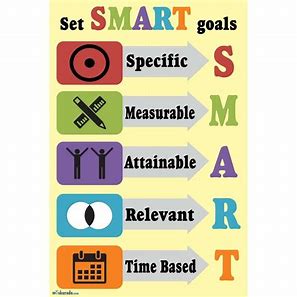Know Autism, Know Your Child with < My Thoughts > by Sara Luker. UNIT 6 CH 5 FUTURE CHALLENGES (OLDER ADULT)
UNIT 6 CH 5 – Where to Look for Resources
CHAPTER 5 – FUTURE CHALLENGES
COLLEGE
CAREER
Arky (2018) interviewed parents who are confronting new challenges for their kids’ upcoming adulthood. At age 21 or 22, depending on the state, all the educational supports and services they have been receiving, under the federal Individuals with Disabilities Education Act (IDEA), will vanish.
This forced transition, called ‘aging out’. ‘Aging out’ of services pushes students with special needs into the woefully lacking system for disabled adults. Other students who are termed ‘high-functioning’, including those who may be dealing with things like ADHD, anxiety and sensory issues, in addition to their social and communication delays, are not going to magically stop needing support after they reach a certain chronological age. Yet, they too will lose services.
< My Thoughts > “…‘Aging out’ of services…
Information regarding ‘Aging Out’ of the Social Security Disability System can be found online for citizens of the United States. There are also International Social Security Programs which may be of assistance, for disabled persons globally.
Sicile-Kira, C. (2014) says that some people on the ‘more able’ end of the spectrum have found the college or university environment a comfortable place for them to learn and even work. Now there are so many opportunities to get an education by combining ‘brick & mortar’, and an ‘online’ settings, to achieve various degrees.
< My Thoughts > “…college or university environment…”
There are states which have colleges with Special Education Departments providing Special Programs and Services, in accordance with the Individuals with Disabilities Education Act (IDEA).
Gardner (2013) marvels, Dale would have access to the College Supported Learning Department. They agreed to make reasonable adjustments, and to ensure inclusion.
< My Thoughts > “To make reasonable adjustments…”
If there is an indication that a student may have a disability that is impacting on their studies, there may be the requirement to undertake reasonable adjustments. Reasonable adjustments also address employee needs, allowing for the individual’s strengths and abilities; plus providing –
- retraining or offering alternative tasks
- longer supported training periods
- more time off for rehabilitation, as needed
- additional breaks, as needed
- changing inaccessible areas, as needed
- relocating work area to address sensory needs
Wentz, et al. (2012) explored the idea of using technology to help support adolescents and young adults with ADHD and autism disorders, in employment and educational settings. The idea was based on the concept that it would be easier to get additional support from a coach in an online ‘Chat Room’ setting which could be accessed during the day between the hours of 2 – 4pm.
Plus, the frustration parents may face, Burke & Goldman (2015) believe that the process can become quite costly. They offer that in some states, but not all, there are pro-bono attorneys who will assist the families engage in ‘due process’. If they cannot find support or pro-bono services from attorneys who will help them, every state has a Protection and Advocacy (P & A) agency to assist at a reduced cost.
< My Thoughts > “…attorneys who will assist the families…”
If you feel marginalized or you are not being heard, don’t get comfortable. Trust your parent radar. you have the legal right to can engage advocates, mediators or even legal advisors to guide DUE PROCESS; guaranteed to your child by Individuals with Disabilities Education Act (IDEA).
References:
Arky, B. (2018). Aging Out: When Kids with Autism Grow Up; Retrieved online from –
https://childmind.org/article/aging-out-when-kids-with-autism-grow-up/
Burke, M., & Goldman, S. (2015). Identifying the Associated Factors of Mediation & Due Process in Families of Students with Autism Spectrum Disorder; Journal of Autism & Developmental Disorders; V45; 1345-1353.
Gardner, N. (2013). All Because of Henry; eBook Edition.
Sicile-Kira, C. (2014). Autism Spectrum Disorder (revised): The Complete Guide to Understanding Autism; Penguin Random House Company; New York, N.Y.
Wentz, E., Nyden, A., et al. (2012). Development of an Internet-based Support & Coaching Model for Adolescents & Young Adults with ADHD and ASD; A Pilot Study; Journal of Early Child & Adolescent Psychiatry; V:21, p611-622.


 RSS Feed
RSS Feed